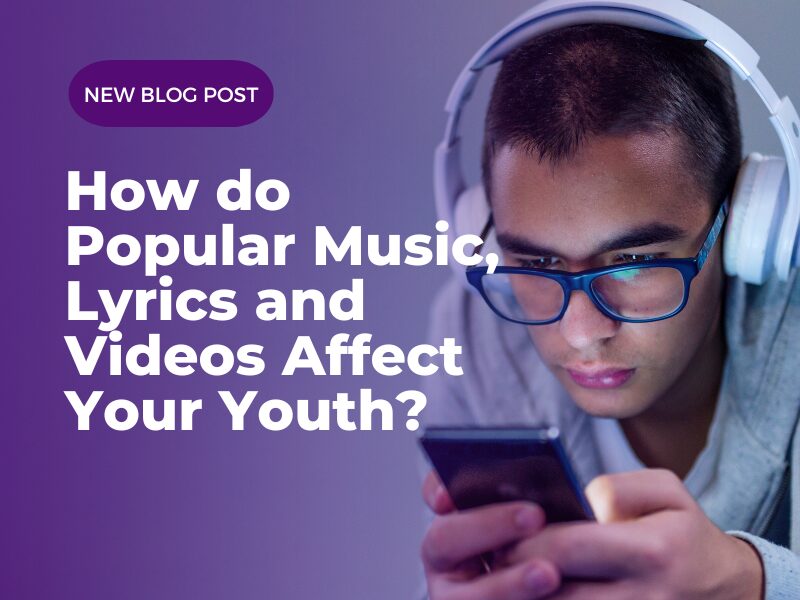How do Popular Music, Lyrics and Videos Affect Your Youth?

Music is a powerful medium. While that power can be beneficial, it can also have a harmful influence. As music becomes increasingly accessible through cell phones, online streaming services and other new technologies, it is important to understand its influence on today’s youth.
An article in the American Academy of Pediatrics offers some general insights into how music, lyrics and videos affect our youth.
Why and How Do Youth Use Music?
Youth use music in different ways:
- to relieve tension or boredom
- provide a creative outlet
- help take control of their emotions or mood
- form identity (e.g. music preferences can be a way of finding a group identity)
- as entertainment or a distraction
We have also learned that their choice of music, reactions to it and interpretation of it depends on their age, culture and ethnicity. For example, one study found that female youth are more likely than male youth to use music to reflect their emotional state (e.g. listen to sad music when they are feeling down). Male youth are more likely to use music in a stimulating way (e.g. to create a positive image of themselves, or raise their energy level).
Do Lyrics Matter?
While some argue that youth listen to music mostly for its entertainment value and pay little attention to the words, one study found that almost 1 in 5 male youth, and 1 in 4 female youth like their favourite songs because of the lyrics. Other studies have found that the more importance youth place on a type of music, the more they pay attention to the lyrics. One group of researchers indicated that although younger listeners may not understand all the lyrics, they can grasp the general message it offers.
Do Music Videos Affect Behavior?
Music videos that tell a story (that may or may not be about the song) provide a specific interpretation of the song that is reinforced every time it is seen and heard. Research has indicated that exposure to violence, sexual messages, stereotypes, and substance abuse might produce significant changes in attitudes and behaviors in youth. For example, one study found that frequently watching music videos was related to being more at risk for believing false stereotypes. It was also associated with female youth placing more importance on their appearance and weight. While studies continue to emerge regarding specific effects on specific types of youth, it has been recognized that the effect of music video messages on youth is dependent on their age, developmental and emotional stage, and the level of exposure.
So How Can This Help With Your Youth?
These studies tell us that:
- Youth use music in various ways and by learning how your youth uses music, it may help you understand how your youth is feeling or what he/she needs.
- Because even young children can have some awareness of lyrics or at least the general messages of songs, it is important to know what they are listening to so you can talk to them and find out what they are learning from it.
- It is important to know that music videos can use both lyrics and visual content to reinforce messages. Exploring with your youth what types of music they listen to and videos the watch can allow you to be more aware of the messages they are regularly encountering.
- How a youth engages with music and its visual and auditory content can differ according to their developmental stage, exposure, etc. As these things change, it is important to be attentive to how your youth’s engagement with music and its influence on them may also be changing.
Source: American Academy of Pediatrics. (2006). Policy statement- Impact of music, music lyrics, and music videos on children and youth. Pediatrics, 124 (5), 1488-1494.
Instagram Feed
"Immigrants can have issues with languages, workplace cultures, and a lack of a network of people. Starling listened to me and offered great advice. Local employers should consider hiring recent immigrants as we have so much to offer and are looking for a chance to prove ourselves."












